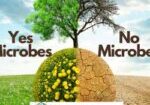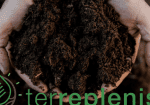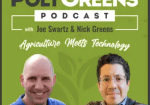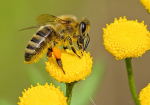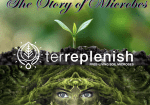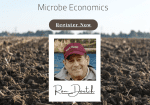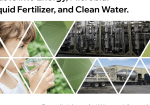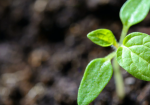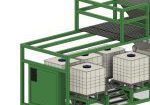The Role of Composting in the Zero Waste Mission
June 21, 2020
It is estimated that 80 billion pounds of food is wasted per year in the US. This makes up 30-40% of the US food supply. Food waste is a very broad topic (an important one at that) and there are many resources that are available to help us understand more about why we waste so much food in the US, how the food system works, and what we can do to help reduce food waste. Today we will talk about some of the affects that food waste has on the environment, and one step you can take to reduce your food waste.
How is food waste affecting the environment?
Wasted food ends up in the landfill. Food IS biodegradable but when thrown into the landfill, the biodegradability is severely decreased, as it is almost always contained in a plastic bag suffocating beneath millions of pounds of other plastic bags, with minimal air or insects which help to break down the food. As the rotting food is in the process of this slow decomposition it releases methane, a greenhouse gas that contributes to global warming.
Food waste also means water waste. It is estimated that 21% of our freshwater use goes into growing the food that is wasted. When we waste food, all of the resources that were put into growing, transporting, and processing that food is also wasted.
Not only are the landfills polluting surrounding water, soil, and air, it is also a health hazard to humans. Most landfills are placed far away from cities and large populated areas due to the many reports of increased health issues from those living near a landfill.
Made from recycled food scraps, Terreplenish is our natural contribution to help solve this issue. We want to share one small yet impactful way that you can also contribute: composting!
What is composting?
Composting is a process of recycling organic materials that you would normally throw away such as food scraps, grass-clippings, leaves, compostable paper products, and agriculture residues. When these organic materials are mixed together they break down into a nutrient-rich soil fertilizer.
What are the benefits?
It is calculated the 50% of the 80 billion pounds of food wasted per year comes from the food we throw away at home. By composting, we can reduce this number dramatically. Most of us throw this food away because we don’t understand food labels, such as “sell by”, “use by”, and “best before”. Click here to learn more about what these labels mean.
Another benefit of composting is how it enhances our soil and protects our watersheds. When compost is added to soil, it can filter out 60-90% of urban stormwater pollutants. Instead of polluting the environment with methane like rotting food in landfills, when food scraps are converted to compost and is applied to the land, it sequesters carbon.
Compost improves biological, chemical, physical characteristics of the soil. It increases microbial activity, soil fertility, and resilience to flood and droughts. Compost improves soil structure, water retention, and the soils ability to store nutrients. It protects against soil erosion and desertification as well as plant disease.
When soil is nourished, our planet is nourished! Using compost as a natural fertilizer is a great alternative to the chemical fertilizers that harm and deplete the soil.
Who can compost?
Anyone can compost! Whether you live in the city or in the country, there are options for you. If you yourself do not have a garden or yard, maybe you have a friends who have gardens who want your compost! Once your food scraps are decomposed into compost, you can spread it around on your lawn or in your houseplants! If you do not have the space to compost, you may live in a city that composts or there may be places near you that will take your food scraps to compost them! Click here for a state-by-state directory!
Here are a few great resources and guides to begin your composting journey:
And remember — if you want to nourish your garden, soil, or plants but you do not have the time or resources to compost, you can always purchase Terreplenish as an alternative to the DIY method! You are still supporting reduction in food waste and a ground-breaking product that is helping to reverse climate change.
Other helpful resources:
How we waste food + action steps:
How we waste food + effects of wasting food + 17 action steps: https://foodrevolution.org/blog/reduce-food-waste/
Why we waste food in America:
Related Posts
Grow Better with Terreplenish®
Proven nitrogen-fixing results from our blend of proprietary
free-living nitrogen-fixing microbes.
100% all natural and OMRI listed for organic use on:

